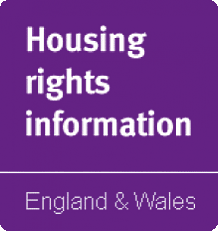Housing Benefit is paid to people on low incomes to help them to pay their rent. Applications for benefit should be made as promptly as possible as benefit will usually only be paid from the Monday after the form is received by the Council. Support Workers should make sure that all the information required is supplied on the application form, and that all relevant supporting information is enclosed, to avoid delays. Use the checklist on the application form to check that this is the case. Connect2Cardiff (Tel: 029 2087 2087) or the Benefits & Finance Advice Centre at Marland House can help with any queries.
Applicants may be happy to authorise the Housing Benefit Section to share information with their Support Worker to enable them to act on their behalf - there is a section on the application form to facilitate this, or alternatively permission can be requested by the tenant in writing at a later date.
Do not delay - always make a claim!
Remember that any changes in circumstances should always be notified to the Housing Benefit Section.
There are a number of questions that may be asked about Housing Benefit - here are some relevant answers:
How much will be paid?
The maximum amount of Housing Benefit that can be paid to an individual or family depends on the size of property they need and is set by Local Housing Allowance rates. The actual amount that will be paid may be less than this as income and savings are taken into account.
Remember that single people under the age of 35 are only entitled to the shared accommodation rate whatever type of accommodation they live in, unless they are care leavers under the age of 22 or they have a severe disability premium in Housing Benefit, Income Support or Job Seekers Allowance (income based).
Who is it paid to?
Housing Benefit is generally paid to the tenant unless there is good reason not to do so, for instance if the tenant has substantial rent arrears or is likely to have difficulty in managing their financial affairs.
Is advice available?
Cardiff Council offers a number of services to provide advice regarding Housing Benefit issues. These include:
- A dedicated Landlord Liaison Team which works closely with private landlords to provide up to date information and advice, and to ensure that Housing Benefit claims and reviews are dealt with as quickly and accurately as possible. If you have a query about your client's Housing Benefit claim (and they have given the Housing Benefit Team permission to share information with you) contact the Team on 029 2053 7292
- A Benefit Take Up Team to promote the take up of Housing Benefit & Council Tax Benefit and assist with claims if necessary. They offer quick Housing Benefit estimates over the 'phone if you are unable to use the online calculator or have any queries. The Team also offers information sessions for Support Workers to improve understanding of Housing Benefit issues. Contact them on 029 2053 7537 to arrange a visit to your organisation.
Can claims be backdated?
Housing Benefit is usually paid from the Monday after the application form is received by the Council. However backdating may be possible if there is good reason for the claim being delayed, for instance due to health issues, or an inability to deal with their own affairs. Complete Part 16 of the application form to request that the claim is backdated and provide any relevant supporting information.


